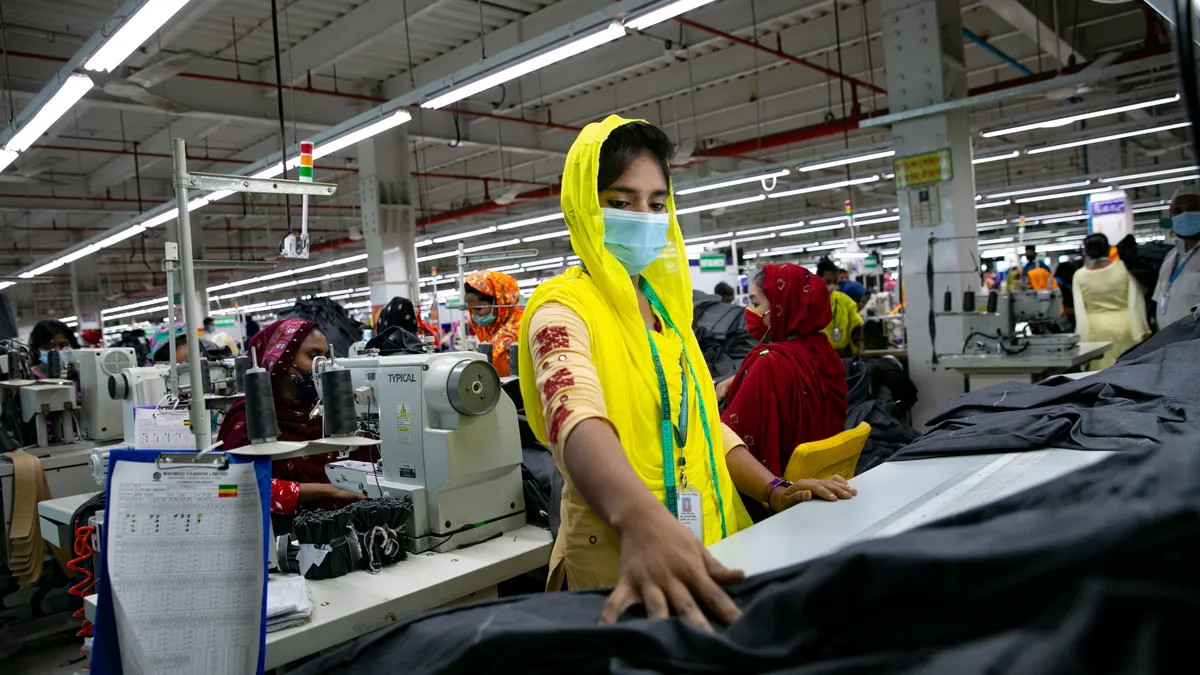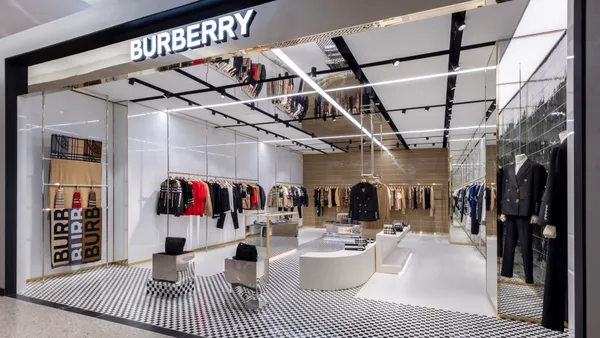Dive Brief:
- Guess sourced 27% of its apparel, jewelry and accessories from China in fiscal year 2021, according to its latest sustainability report, a sharp drop from 42% in fiscal year 2020 as the company continues reducing its reliance on China to avoid tariff risk.
- Suppliers from Bangladesh and India made up a larger share of the apparel company's purchases in fiscal year 2021, at about 23.5% and 18%, respectively. In fiscal year 2020, both were at less than 15%.
- Guess said in the report the changes occurred to diversify its sourcing and "as a result of changing economic conditions and purchasing strategy," noting it has reduced volume from countries outside its top sourcing regions to consolidate its supply chain.
Dive Insight:
Guess is leaning more on suppliers from Bangladesh and India as tensions between the U.S. and China linger and tariffs persist, including among fashion products.
Nearly 90% of respondents to the 2021 Fashion Industry Benchmarking Survey said U.S.-China tariffs "directly increased their company's sourcing cost this year." Duty rates for apparel imports from China were 23.4% in 2020, higher than 2017's 16.5%, according to the survey. In December, President Joe Biden said he wouldn't make any immediate moves on tariffs, but his administration could grant exclusions to more products.
In its annual 10-K, Guess said it’s making "continued progress on reducing our dependency on sourcing from China and mitigating potential tariff risk without compromising the quality of our products."
Guess' sourcing diversification isn’t unique, especially within the fashion industry. In 2019, 83% of respondents in a U.S. Fashion Industry Association report said they planned to reduce their sourcing from China (only 6.7% said they would "reduce sourcing significantly"). Bangladesh and Vietnam are taking much of the sourcing share.

"'China plus at least 1-2 additional Asian countries' is the most popular textile raw material sourcing practice among respondents," according to the Fashion Industry Benchmarking Survey.
As Guess expands its supplier base, the fashion brand said it would also expand its supply chain worker grievance program to factories in India and Vietnam. The program allowing workers to report concerns anonymously already exists in a "few key supplier factories in China," according to its sustainability report.
"As trust in the grievance program has grown over the years, factory managers recognize its value to help them improve," the report said.
COVID-19 delayed the grievance program's expansion, along with other Guess practices related to responsible sourcing. Supplier factory trainings were postponed in 2020, and Guess "applied special extensions and flexibility" to its audit schedule to comply with pandemic restrictions.
The Verisk Maplecroft Modern Slavery Index said in 2020 the pandemic has complicated the auditing process, making it harder for companies to ensure their supply chains have ethical working practices.
In fiscal 2021 94% of Guess' assessments of directly sourced suppliers detected issues, its sustainability report said. That’s down slightly from 96% in fiscal 2020.
"The three issues most commonly identified during assessments of (Guess) suppliers were: health and safety, wages and benefits, and hours of work, with hours and wages being closely linked," the report said. "Overwhelmingly, the identified issues were more related to procedures and paperwork, rather than issues that could threaten worker safety, compensation, or wellbeing."















